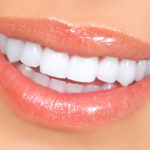By David Blyweiss, M.D., Advanced Natural Wellness
It’s no secret that most doctors hand out statin drugs like they were candy. While some people do benefit from these cholesterol-lowering drugs, they can cause problems for many patients. Statins can cause liver damage, nausea, diarrhea, constipation and joint pain. One of the biggest side effects of statins is severe muscle weakness. A new report by the FDA warned that high doses of the cholesterol-lowering drug Zocor increases the risk of muscle injury including the serious complication known as rhabdomyolysis which can result in fatal kidney damage. The study also found that Zocor was even more dangerous when it was combined with other heart drugs used to treat heart arrhythmias, angina and blood pressure.
The side effects from statins are so common that I rarely prescribe them for my patients with high cholesterol. Instead, I rely on red yeast rice. Red yeast rice is the fermentation by-product of cooked non-glutinous rice on which red yeast has been grown. It contains a compound called monacolin K that inhibits the production of cholesterol by stopping the action of a key enzyme in the liver. Surprisingly, this is similar to the active compound in the cholesterol-lowering drug Mevacor.
Red yeast rice is so effective that, according to a new study in the American Journal of Cardiology, it can cut total cholesterol by 15 percent and LDL (bad) cholesterol by 21 percent. Better yet, it is well-tolerated by 92 percent of the people taking it. This new study reiterates similar findings that recently appeared in the Annals of Internal Medicine.
Open your arteries, improve blood flow for a new health miracle...
Did you know your circulatory system has over 60,000 miles of arteries, veins and other blood vessels, if stretched end to end?
But as you age, your blood vessels undergo changes, which may cause them to stiffen, thicken and get clogged.
GOOD NEWS! Doctors have now identified a “Miracle Molecule” inside your arteries that helps OPEN your arteries and IMPROVE blood flow.
It’s what Dr. Valentin Fuster calls it, "One of the most important discoveries in the history of cardiovascular medicine."To you, that means...
- Healthy blood pressure
- Sharper mind and memory
- Skyrocketing energy and muscular strength
- Increased pleasure and passion in the bedroom
- Improved circulation to every cell and organ in your body
Go here to discover a new natural way to significantly boost the levels of this miracle molecule in YOUR body NOW!
Even better results were seen when fish oil was added to the equation. A combination of fish oil, red yeast rice and lifestyle changes were found to produce as great a decrease in cholesterol levels as statin drugs, according to an earlier study by researchers from the University of Pennsylvania Health System. The researchers gave 74 people with high cholesterol a daily dose of either Zocor or a combination of fish oil and red yeast rice. After 12 weeks, LDL levels decreased significantly in both groups, leading the investigators to conclude that the yeast and fish oil combination was just as effective as the statin drug for lowering cholesterol levels. The fish oil and red yeast rice even outperformed statins in one area. They decreased triglyceride levels by 29 percent, while the statins didn’t have any effect.
Are You Suffering From...
- Love handles and a pot belly
- Romance that isn't what it used to
- Forgetfulness and inattention
- Low (or no) strength and endurance
- A sex drive that's shifted into neutral...or worse
If so...you may have Mature Male Burnout. Click here to discover more about this unique condition and what you can do about it.
While red yeast rice is a safe and effective alternative to dangerous statins, it’s not 100 percent worry free. Like statin drugs, red yeast rice appears to deplete CoQ10 levels in the body. CoQ10 is one of the most powerful antioxidants in your body. It’s the spark that ignites energy production in every cell in your body. Co-Q10 protects your cells, proteins and even your DNA from free-radical damage. Yet levels of this critical antioxidant diminish as we age and can be depleted by certain compounds like statin drugs and red yeast rice. This is why it is critical to take supplemental Co-Q10. But it needs to be the right type of Co-Q10 to be effective.
Most Co-Q10 supplements aren’t well absorbed by the body. In fact, as little as four percent may reach your cells! Fortunately, there is a much more effective form of this critical nutrient—ubiquinol. Ubiquinol is absorbed quickly. It’s also absorbed eight times more efficiently than over-the-counter Co-Q10 supplements. Ubiquinol is so bioavailable that it raised plasma levels from 0.59 to 0.91 in young people, and from 0.82 to 1.33 in older patients in a recent trial. That’s a 62 percent increase in plasma CoQ10 levels!
Ubiquinol is also one of the most powerful fat-soluble antioxidants in existence. It protects your body from damage caused by oxidative stress and free radicals. It also recycles other antioxidants like vitamins C and E. But that’s just the beginning. Studies show that ubiquinol boosts vitality in the forty-plus set, when the body’s natural production of this vital nutrient starts to slow down. Researchers are also discovering that CoQ10 can be beneficial in the treatment of a wide variety of ailments, including diabetes, breast cancer, kidney disease, Parkinson’s disease, muscular dystrophy and male infertility.
If your cholesterol levels are higher than they should be, I recommend taking 1,200 mg. of red yeast rice twice a day along with 3,000 mg, of a high quality fish oil supplement. To protect against Co-Q10 depletion and boost vitality, I also advise taking 100 mg. of ubiquinol with a meal containing a small amount of fat to maximize absorption. It’s a heart healthy alternative to potentially dangerous statins and a great way to re-energize every cell in your body.
References:
Becker DJ. Red Yeast Rice for Dyslipidemia in Statin-Intolerant Patients: A Randomized Trial. Annals of Internal Medicine. 2009; 150:830-839.
Becker, D. Simvastatin vs therapeutic lifestyle changes and supplements: randomized primary prevention trial. Mayo Clinic Proceedings. 2008; 83: 758-764.
Hosoe K. Study on safety and bioavailability of ubiquinol (Kaneka QH) after single and 4-week multiple oral administration to healthy volunteers. Regulatory Toxicology and Pharmacology. 2007;47:19-28.
Venero CV. Lipid-Lowering Efficacy of Red Yeast Rice in a Population Intolerant to Statins. The American Journal of Cardiology. 2010; 105: 664-666.






